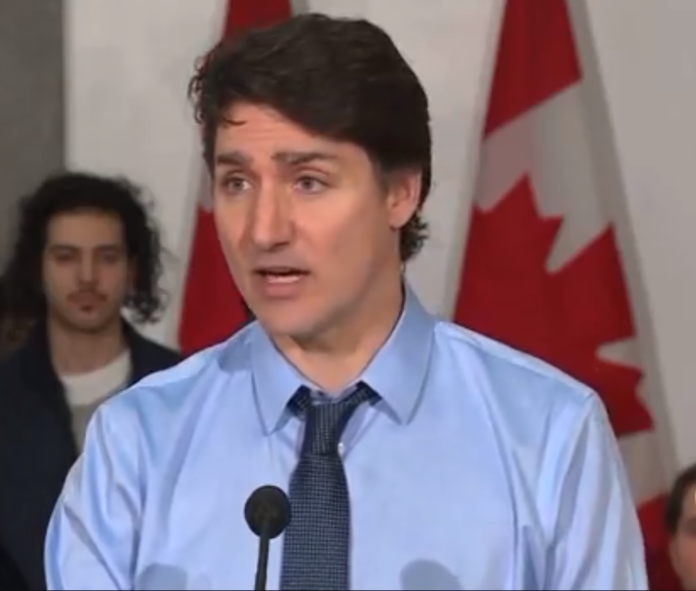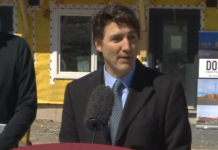PRIME Minister Justin Trudeau on Wednesday announced measures from the upcoming Budget 2024 that he said were to make the playing field fairer for renters and make it easier for them to become homeowners.
These measures include:
- Launching a new $15 million Tenant Protection Fund. This would provide funding to provincial legal aid organizations to better protect tenants against unfairly rising rent payments, renovictions, or bad landlords.
- Creating a new Canadian Renters’ Bill of Rights, developed and implemented in partnership with provinces and territories. This would require landlords to disclose a clear history of apartment pricing so renters can bargain fairly. The government will also crack down on renovictions, create a nationwide standard lease agreement, and give renters more agency.
- Making sure renters get credit for on-time rent payments. Renters deserve credit for the money they put toward rent over the years, especially when it comes time to apply for a mortgage for their first home. The government is going to amend the Canadian Mortgage Charter and call on landlords, banks, credit bureaus, and fintech companies to make sure that rental history is taken into account in the renters’ credit score.
Trudeau said that this was about protecting renters. But this was also about generational fairness – making sure Millennials and Gen Z, who are most likely to rent, get a level playing field in the rental market. This is just one of the things that the government is going to be doing in this budget to build an economy that is fair for every generation.
Quick Facts:
- The Government of Canada’s Budget 2024 will be tabled in the House of Commons by the Deputy Prime Minister and Minister of Finance on Tuesday, April 16
- The measures outlined above build on the progress the government has already made to help renters become homeowners, address the unique challenges they face, and build more rental housing across Canada, including:
- Launching the Tax-Free First Home Savings Account, which is already helping over 500,000 Canadians save faster for their first downpayment.
- Removing the Goods and Services Tax (GST) from new rental housing to incentivize the construction of more apartment buildings, student housing, and seniors’ residences built for long-term rental accommodation.
- Unlocking $20 billion in new financing to support up to 30,000 more rental apartments per year by increasing the annual limit for Canada Mortgage Bonds from $40 billion to up to $60 billion.
- Helping low-income Canadians with the cost of housing by delivering direct rent support through the Canada Housing Benefit, an initiative jointly funded and co-developed with provinces and territories. The federal government recently announced a $99 million top-up to this benefit to make rent more affordable for Canadians. By 2027-28, the Canada Housing Benefit is expected to have helped over 300,000 low-income households with the cost of rent.
- Canada’s economic plan is to build more homes faster and to make housing more affordable. This plan also includes:
- The Apartment Construction Loan Program, a $40+ billion initiative that boosts the construction of new rental homes by providing low-cost financing to homebuilders. Since 2017, the Apartment Construction Loan Program has committed over $17 billion in loans to support the creation of more than 48,000 new rental homes. It is on track to build 101,000 new rental homes across Canada by 2031-32.
- The Affordable Housing Fund, a $14+ billion initiative that supports the creation of new market and below-market rental housing and the repair and renewal of existing housing. It is designed to attract partnerships and investments to develop projects that meet a broad spectrum of housing needs, from shelters to affordable homeownership. As of December 31, 2023, the Fund has committed $8+ billion to repair or renew over 150,000 homes and support the construction of more than 32,000 new homes.
- The Housing Accelerator Fund, a $4 billion initiative that encourages municipalities to incentivize building by making transformative changes, such as removing prohibitive zoning barriers. To date, the federal government has signed 179 Housing Accelerator Fund agreements which, combined, will fast-track an estimated total of over 750,000 housing units across the country over the next decade.
- The Rapid Housing Initiative, a $4 billion fund that is fast-tracking the construction of 15,500 new affordable homes for people experiencing homelessness or in severe housing need by 2026. The Rapid Housing Initiative also supports the acquisition of existing buildings for the purpose of rehabilitation or conversion to permanent affordable housing units, focusing on the housing needs of the most vulnerable, including people experiencing or at risk of homelessness, women fleeing domestic violence, seniors, Indigenous Peoples, and persons with disabilities.
- Progress on these and other programs and initiatives under Canada’s National Housing Strategy are updated quarterly at www.placetocallhome.ca. The Housing Funding Initiatives Map shows affordable housing projects that have been developed.
- Since 2015, the federal government has helped almost two million Canadians find a place to call home.












